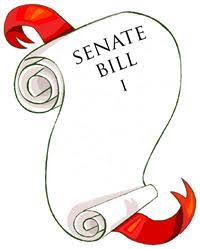Senate Legislation for Disclosure in Litigation Financing
Senate Judiciary Committee Chairman Chuck Grassley (with Senators Thom Tillis and John Cornyn) recently introduced legislation that would require disclosure of third party litigation financing agreements in civil lawsuits. The Litigation Funding Transparency Act of 2018, would require disclosure at the beginning of any class action lawsuit filed in federal courts or aggregated into federal multi-district litigation.
Grassley is calling for what he says is, “a healthy dose of transparency” to ensure the fairness of the civil justice system. He says this is in an interest to prevent conflicts of interest in litigation. The background work for this bill began in 2015 when Grassley and Cornyn began seeking details on the types of cases that funders would finance, the terms of the agreement, and if the court or other interested parties knew of the agreement.
However, since that beginning research in 2015, litigation financing has substantially expanded. Burford Capital alone has reported profits up 75% in 2016 and that 28% of private practice lawyers in the U.S. say their firms have used third-party funding directly. That is “a four-fold increase since 2013.”
The Litigation Funding Transparency Act of 2018 would apply to all class actions in federal courts by requiring class counsel to disclose in writing to the court and all other named parties to the case, the entity of any commercial enterprise that has a right to receive payment that is contingent on the receipt of monetary relief in the case. This disclosure may be limited by stipulation or order of the court to protect certain information. The same obligations would apply in any claim that is aggregated into a federal multi-district litigation proceeding.
Professor Anthony Sebok from Cardozo School of Law, raises both procedural and substantive concerns about this bill. His procedural concern is that Congress should let lawmaking come from below on this issue. By that he is referring to some jurisdictions already passing disclosure laws at the federal district court level.
His substantive concern is that there is no proven benefit of disclosure. The Senators proposing the bill suggest that it will help discover conflicts of interest earlier on but Professor Sebok suggests that there is just not proof of a lot of conflicts of interest, in part because only two litigation finance companies are publicly traded but neither are publicly traded in the U.S.
Topics: litigation finance, alternative litigation finance, third-party funding, new regulation, Litigation Funding Transparency Act of 2018
Works Cited: Anthony Sebok, Procedural, Substantive Concerns About the Litigation Funding Transparency Act of 2018, Big Law Business (June 14, 2018).
News Release, Grassley, Tillis, Coryn Introduce Bill to Shine Light on Third Party Litigation Financing Agreements, Impact News Service (May 15, 2018)

